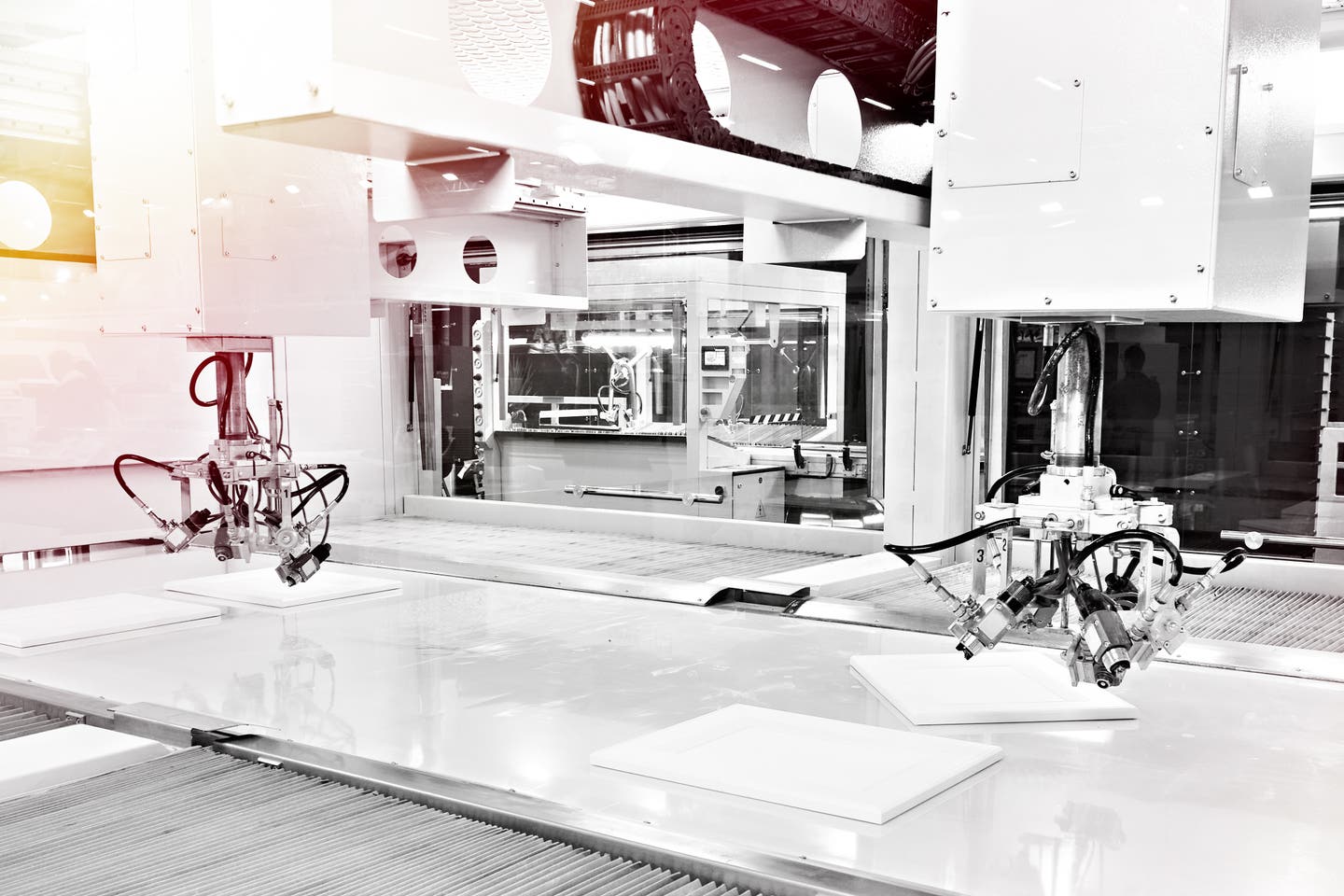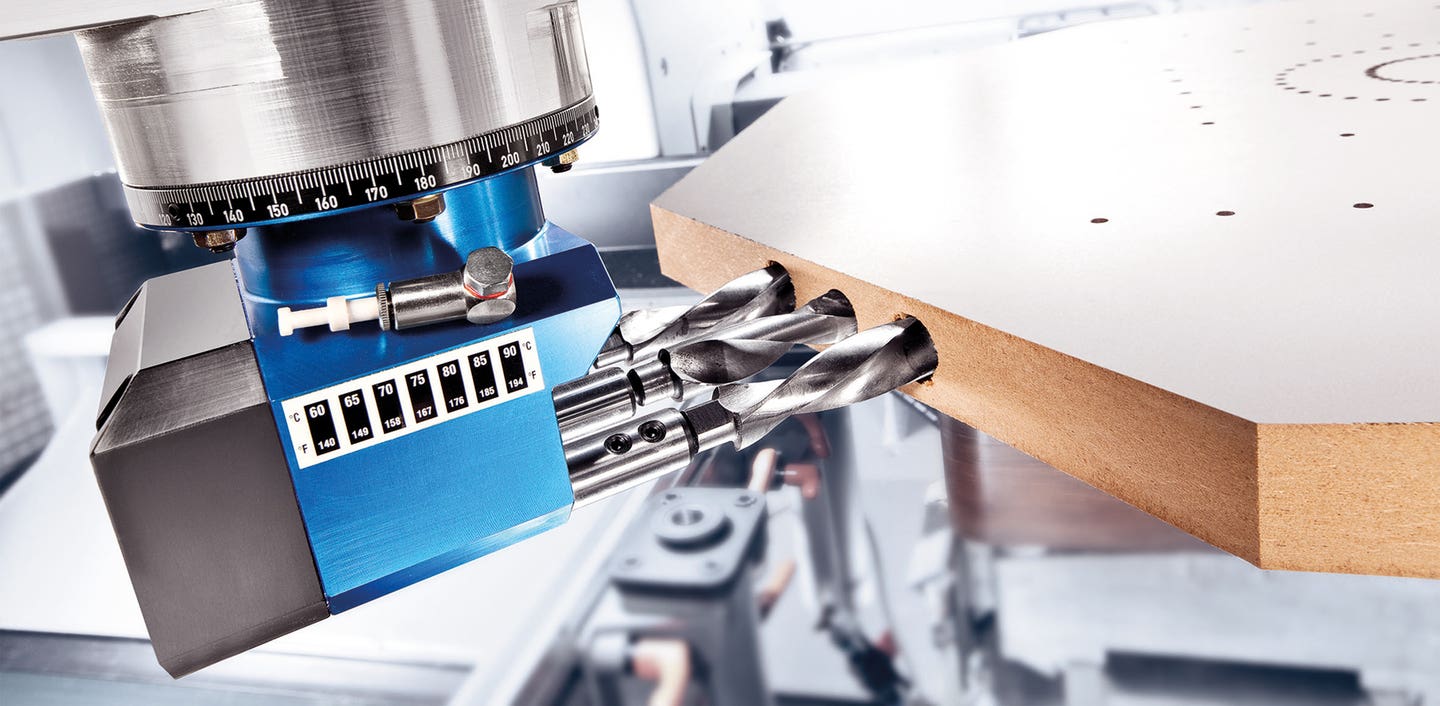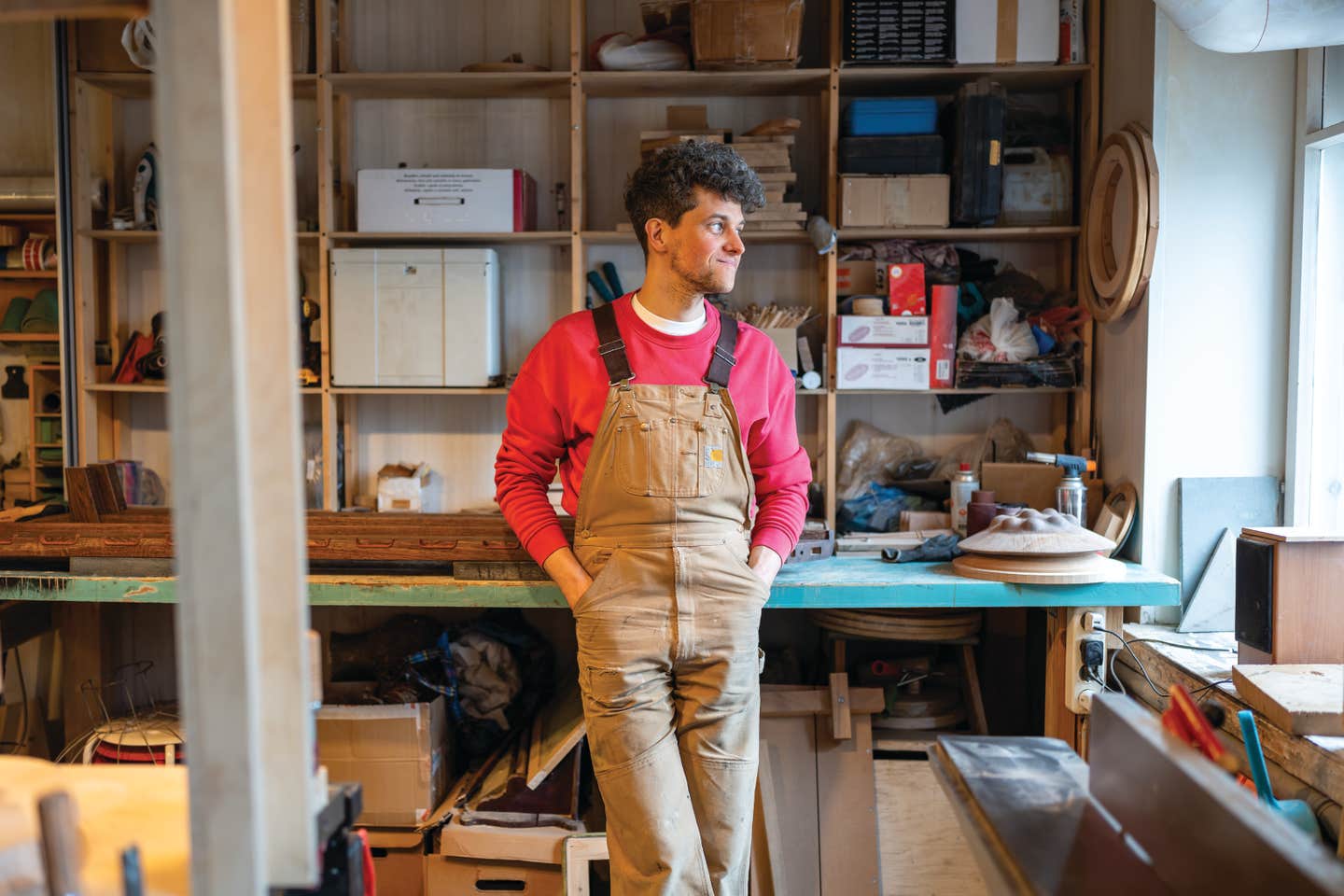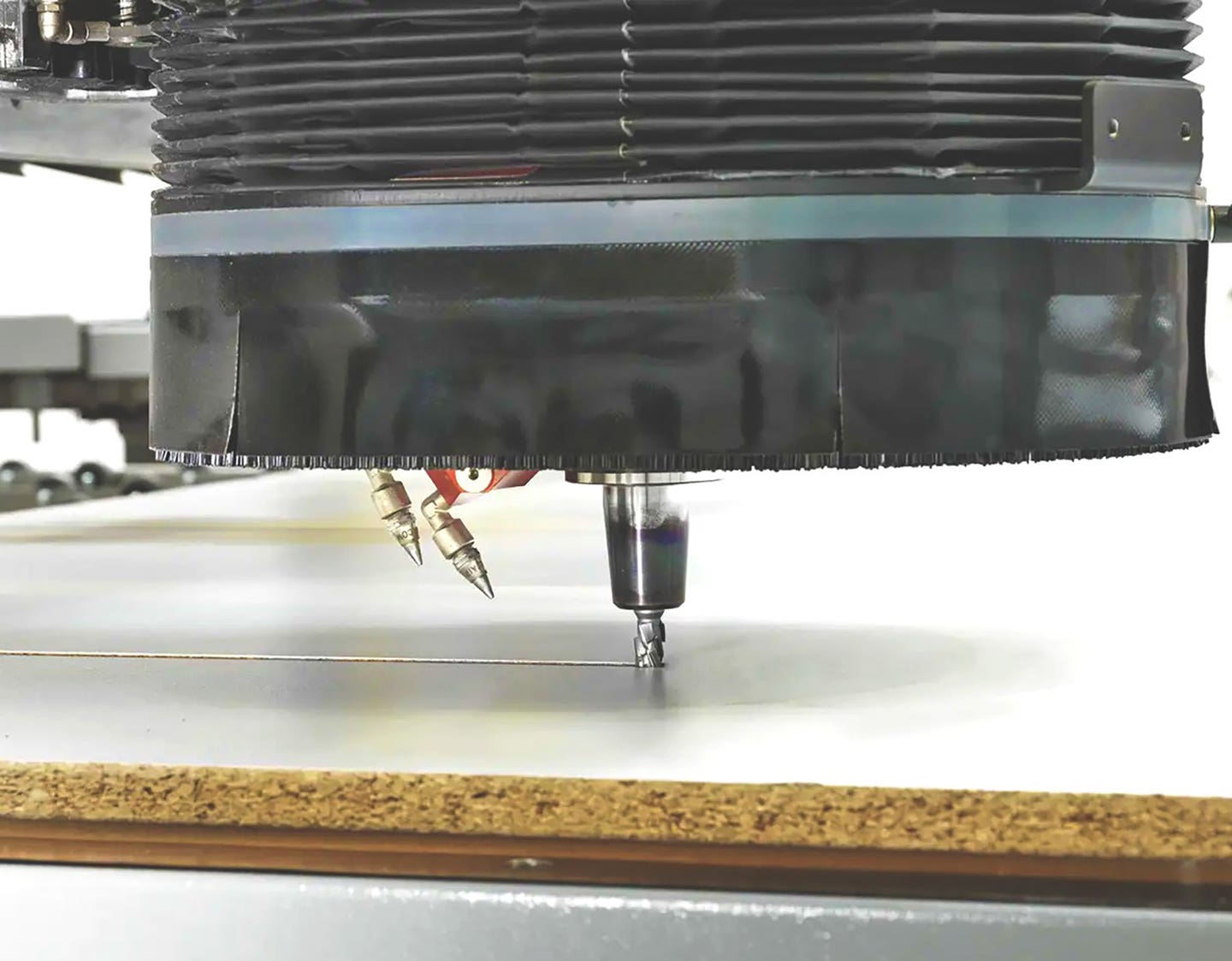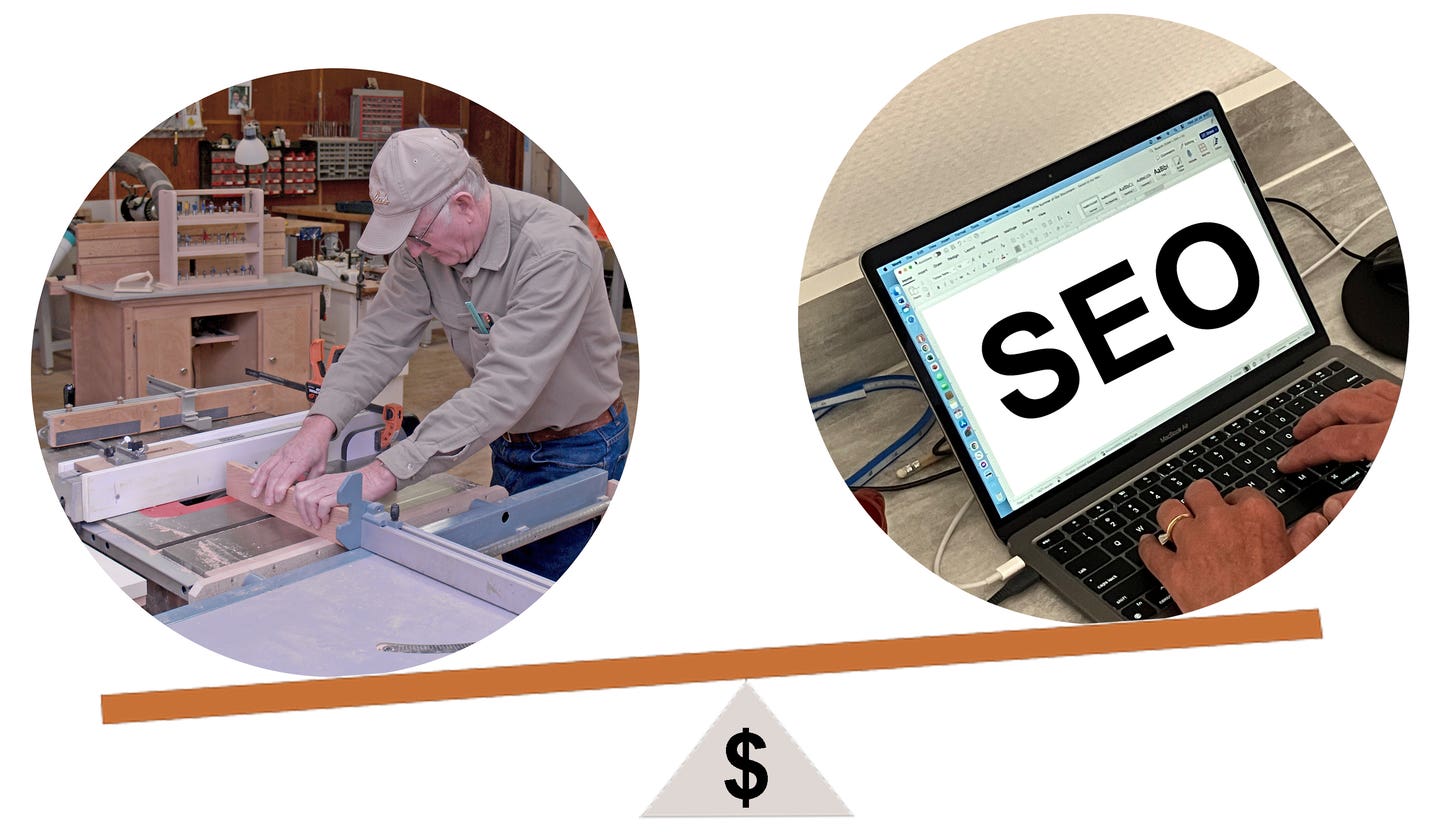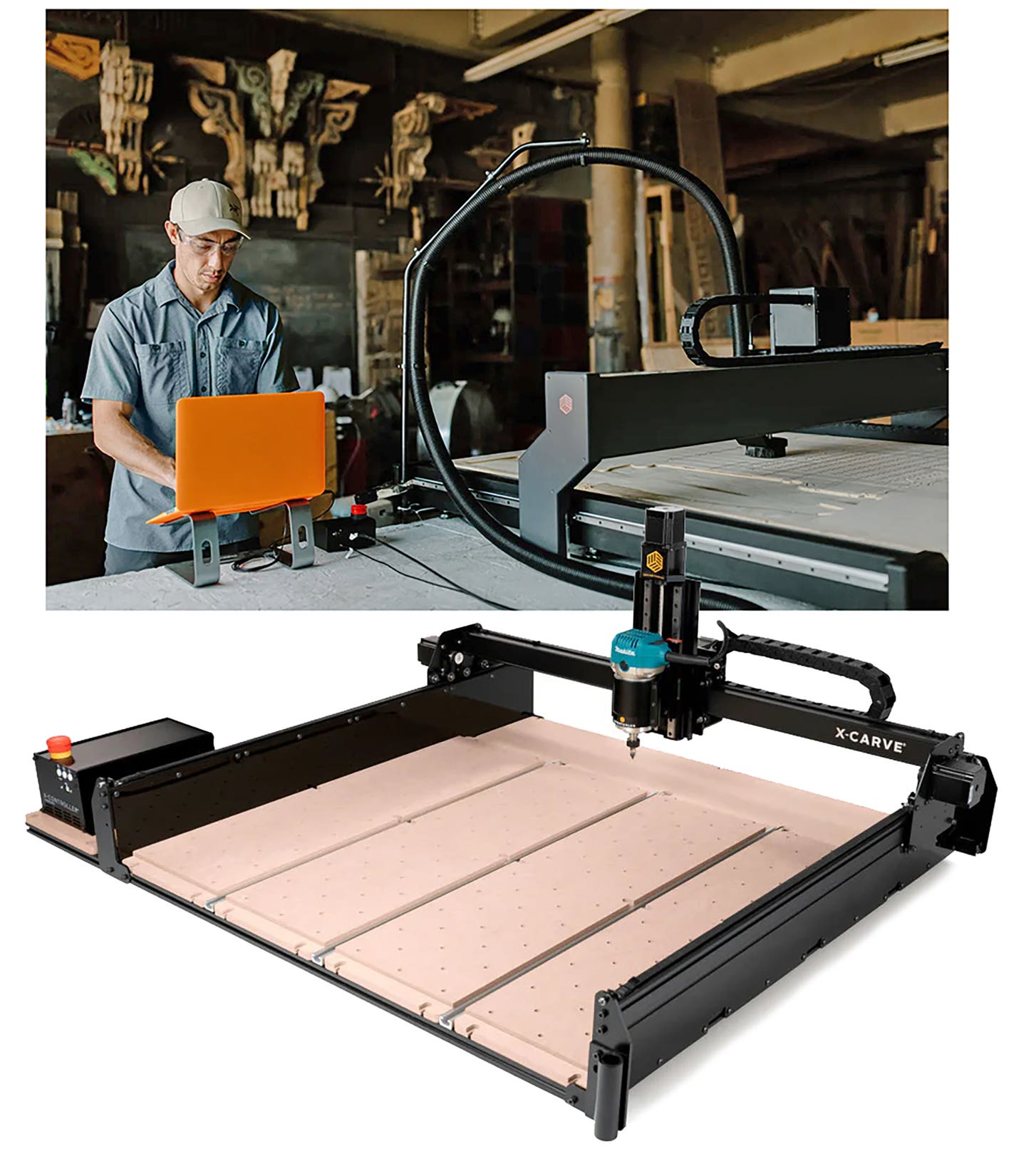CNC for smaller shops
Choices are no longer limited to desktop models, but that’s a good place to start
What would you do with a CNC?
That’s a crucial question for small professional shops and serious amateurs. It comes into play when a woodworker is either contemplating the purchase of a first CNC or considering whether to upgrade from a desktop to a floor model. The process involves matching a shop’s needs to a machine’s capabilities, but it will probably also work the other way around. That is, the machine’s abilities may be able to expand what the shop can offer in its catalog. For example, a shop might just be looking at a CNC to make doors and drawers for the standard Shaker-style cabinets that it builds, but the same machine might also make it very easy to add new features such as arch tops or muntins and glass.
Rather than just planning on cutting parts from sheet stock, a CNC can revolutionize the way that a small shop operates. All it takes is a systemic approach. For example, a router can provide an efficient way to machine for connectors and other hardware. That can allow the crew to go from loading large, completed cabinets in an expensive rented panel truck to just popping a couple of flat-packed pallets in the company pickup and assembling everything on site. The manufacturers of the most common connectors have created software that can be used to mill and drill for its hardware. A woodworker would just need to learn how to download a door library or create CAD drawings that show the machine where to drill.
Adding a CNC can help a small shop get around not being able to hire cabinetmakers in the currently challenging labor market. Instead of hiring and training people to feed sheets of laminated MDF through a table saw, and then loading parts on carts so they can be unloaded at workbenches for routing or drilling, the machine can be routing away in the background while the shop owner does other tasks such as estimating, designing, or finishing.
Small CNCs can handle a lot of tasks. They can be used to make unique parts for custom products or prototypes. They can engrave and cut with lasers, router bits and knives. They can carve, etch, burn, and even draw on wood, and they allow shops to explore new materials such as plastics, metals, and stone for projects that include sign-making or perhaps mixed media cabinet doors.
CNCs offer two very valuable attributes when it comes to woodworking: a high degree of accuracy and the ability to repeat operations precisely. That makes them ideal for production work (especially for small or highly decorative parts), and for details such as exposed joinery.
Small shops are not limited to small CNCs. There are lots of entry-level, budget-friendly, basic but full-size flatbed CNCs that are large enough to handle 4’ x 8’ sheet stock and still cost a lot less than hiring a new employee to work on traditional machines. The key is to buy a basic machine that can be upgraded over time as needed with a larger spindle, more efficient dust collection, automatic tool changers and vacuum hold-down systems. Expansion will occur naturally as the shop gets used to the machine and is becomes more willing to invest in a system, rather than a single tool. A one-man shop can start with the basics and eventually add assisted loading and unloading, parts marking, edge banding, hardware insertion or other options, depending on how the shop operates and what it builds.
Looking at options
Not every small shop needs a large flat platform machine with a big footprint where the material is loaded and then machined. Shaper (shapertools.com) offers a solution where the machine goes to the materials. The company’s Origin is a CNC router without a table, although the company does offer an intelligent and highly intuitive way to fixture small parts for machining. Origin looks and feels like a standard portable router, and it can be paired with the company’s Workstation, a next-generation router table. The Origin’s spindle moves slightly within the router housing, automatically adjusting to a path so that the operator only needs to be close to, and not absolutely on track. Shaper Origin is a definite candidate for custom one-off or short run furniture builders, especially shops that would like to update traditional joinery.
A somewhat similar solution is offered by Goliath (goliathcnc.com). While both are small machines that can travel across large sheets, Origin is guided by hand while Goliath is autonomous (hands-free). It has wheels and ‘walks’ across the work.
Small shops that need to perform traditional two-dimensional machining but may also need to work in three dimensions – such as when making turned parts like balusters, spindles, and posts – may wish to look at the lineup of CNCs from Legacy Woodworking Machinery (lwmcnc.com). Offered in 3’ x 5’, 4’ x 8’ and 5’ x 8’ versions, they have a fourth axis that is normally only seen in more expensive machines. A basic CNC operates in three axes which are left/right, forward/back, and up/down. The Legacy machines can also rotate the part.
The new Innovator CNC Router from AXYZ (axyz.com) comes in two standard sizes (4’ x 4’ and 5’ x 8’) and has a gantry clearance of 6”. Compact but powerful, it is especially appealing to educators and is also ideal for sign and furniture makers. It can be purchased with an optional three-position tool changer.
Axiom Precision (axiomprecision.com) offers several series of small- to medium-sized CNCs beginning with the 24” x 24” Iconic that starts at $3,999, all the way up to the AR16 Elite with a 48” x 48” workspace. The latter starts at $13,999 and has 8” of vertical travel. The company also encourages woodshops to learn more about a CNC before buying one, so it offers in-depth training courses that explore 2D, 2.5D, and 3D aspects of Vectric’s VCarve and Aspire software with step-by-step explanations of their features, hands-on experience with pendant controllers, and live demos of CNC machines and accessories.
Based in Colorado, Diversified Machine Systems (DMS, online at dmscncrouters.com) builds industrial-grade 3-axis and 5-axis machines that are made in the U.S. The company’s smallest model, the Freedom 4’ × 4’, is ideal for small, specialty manufacturing and for shops requiring a very small footprint.
Grizzly Industrial (grizzly.com) offers more than a dozen CNCs including six that bear the company brand. For small shops, there’s the G0894 with a 24” x 36” table, the G0931 which has a 47” square T-slot table, and the G0895, a 4’ x 8’ machine with a vacuum table that’s listed at $18,950.
Grizzly also carries the Shark line of small CNCs from Next Wave Automation (nextwavecnc.com), which ranges from the 12” x 18” SD100 to the 28” x 63” HD520 that has 7” of vertical travel. Next Wave’s machines include a color touchscreen pendant, the latest VCarve software, a one-year warranty, lifetime tech support and the company’s patented Virtual Zero technology that avoids any problems caused by bowed or warped workpieces. It also allows the user to maintain a constant cutting depth on oddly or intricately shaped projects that would otherwise require the creation of a CAD 3D model.
iR2 (i2rcnc.com) offers a full line of small CNCs. The company has recently added the iR2 Stand, which is a full steel floor-stand for desktop machines that includes a laptop arm and industrial grade casters. It comes in a variety of sizes. The company also offers rotary (fourth axis) and laser engraving packages (6 watt), and each iR2 is set up so that these modules simply plug in and the woodworker is ready to go to work.
Vision Engraving & Routing Systems (visionengravers.com) offers a comprehensive range of small machines and a rotary attachment that allows woodshops to engrave cylindrical items up to 10” in diameter. Vision also offers its V-Touch Pendant and proprietary Vision software.
For shops that need to create carved objects, Digital Wood Carver (digitalwoodcarver.com) offers a line of small machines that begins with the compact DWC1824 that handles work up to 18” x 24” wide and 4” tall and comes standard with V-Carve Desktop design software. The largest of the company’s desktop models, the DWC 2440, starts at $4,050 and the catalog also includes some larger entry-level industrial models.
Perhaps the most familiar brand in smaller CNCs, ShopBot (shopbottools.com) offers several machines including the Desktop Max that can be ordered with mechanical or vacuum clamping. The 24” x 36” workbed can handle most cabinet doors and parts, and runs on 120-volt current.
One of the newest options in this field is the Yeti SmartBench (yetismartbench.com), a portable CNC starting at $7,500. This is a jobsite tool that can be packed to a location by one employee and assembled in minutes.
JPW Industries, makers of Jet and Powermatic woodworking equipment, offers the PM-2X2RK with a 24” x 24” x 6” work zone that uses a standard router and the PM-2x4SPK with an electric spindle and a work envelope that’s 24” x 48” x 6”.
The BT1212 from Techno CNC Systems (technocnc.com) is a desktop machine with a 1-hp router, full safety enclosure, aluminum t-slot table, and brushless stepper motors and drives. It is ideal for small part production, prototyping, model making, engraving, signage and educational applications, and is compatible with industry-standard G and M codes.
The Gannomat ProTec from Martin USA (martin-usa.com) has a small footprint of about 35 sq. ft. and can manufacture case goods, drawers, countertops, frame parts and solid wood components on an industrial scale.
The iQ series of desktop CNC routers from Laguna Tools (lagunatools.com) are excellent starter models for production work and they can be purchased with or without a three-position toolchanger. For growing shops, the company also offers the Swift line which can be ordered in 4’ x 4’, 4’ x 8’ and 5’ x 10’ platforms, with or without a vacuum table. They come with a 3-hp, liquid-cooled electro spindle.
The X-Carve Pro from Inventables (inventables.com) offers a small machine that can handle very large jobs. It assembles in less than two hours and plugs into any standard 120-volt outlet. The machine comes with a three-year subscription to Easel Pro software, and it lets woodshops crank up production with faster carves and the ability to carve full 4’ x 8’ sheets. There’s a 4’ x 4’ platform and a 4” x 2” version, and both let the shop tile drawings so the machines cab ‘pass through’ full sheets of plywood. Inventables has a U.S. based support team.
Need to go bigger?
A small woodshop that’s looking to add manufacturing capability and increase volume may want to reach beyond desktop or small floor models. Highly reputable manufacturers, importers, and multi-line distributors such as Anderson America, CNC Factory, Felder, Holz-Her U.S. Inc., Hendrick, Komo Machine, Inc., Laguna, Hermance, SCM Group or Stiles Machinery all have reps available who can help a shop look at needs and discover custom solutions. And Thermwood offers the Cut Ready that is a full-sized CNC with no programming required.
Buying a CNC is a big decision for a smaller shop and one that may not be helped a whole lot by just searching on Google. There can be pitfalls in purchasing such as outdated or restricted software, poor controls, limited tooling options, underpowered or slow performance, substandard spindle cooling or perhaps underbuilt structural components that allow tools to vibrate. Many of the companies named above can also supply complementary machinery such as loading or tool changing equipment that is optimally suited to its specific router brand, and that can significantly reduce problems with aftermarket compatibility.
This article was originally published in the October 2021 issue.


